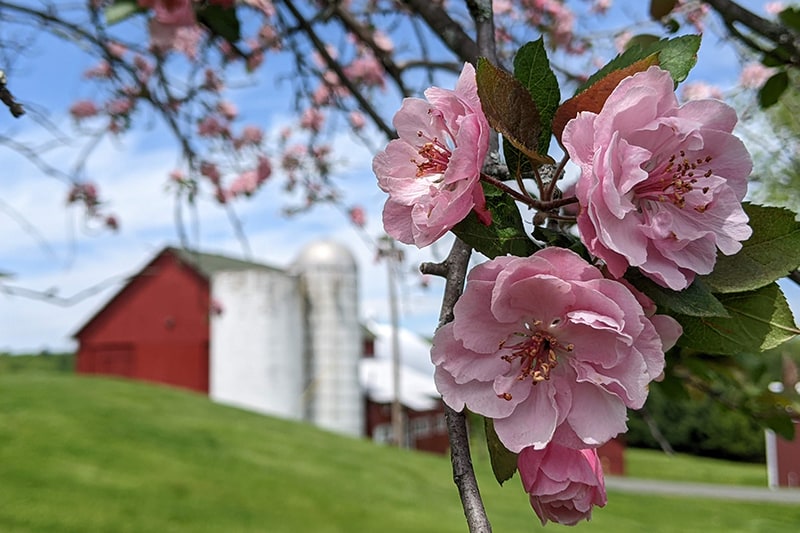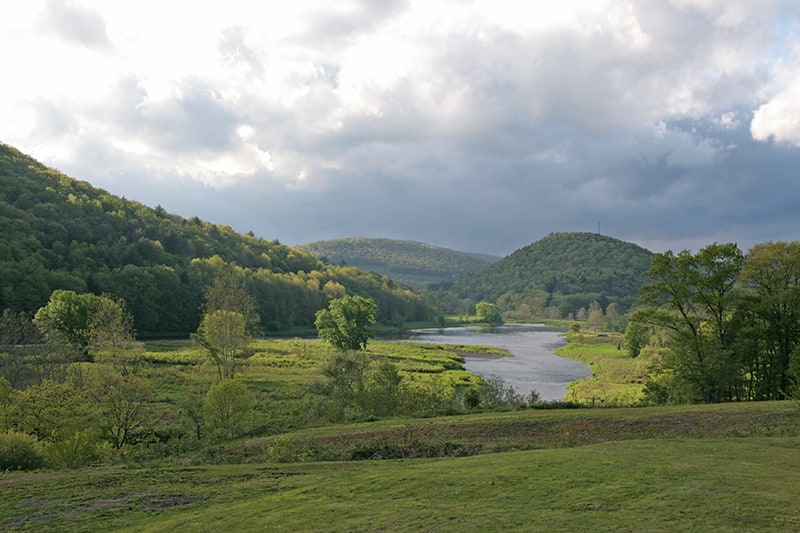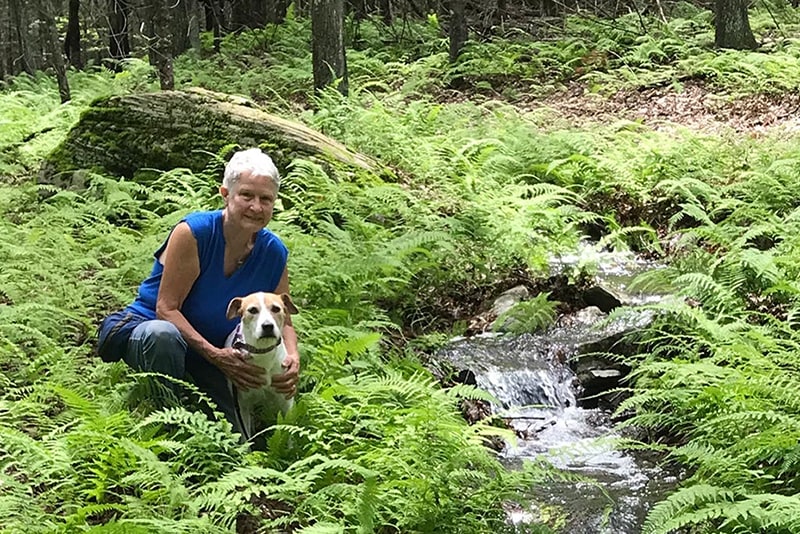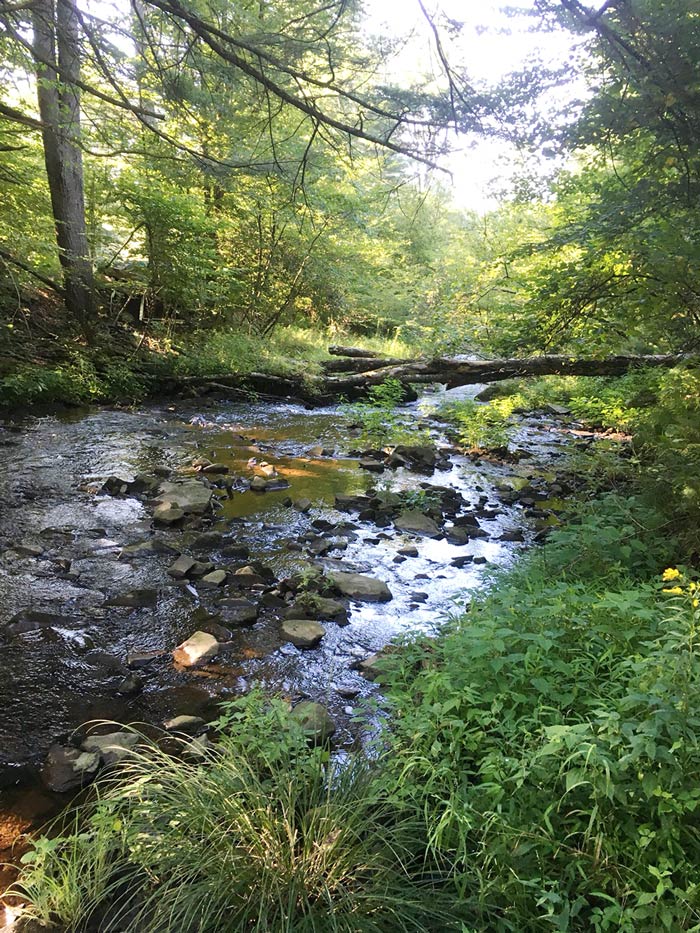Guidelines for Conservancy Decisions Involving Natural Gas Leases
January 13, 2012
The Delaware Highlands Conservancy (Conservancy) is an accredited land trust. We work with willing landowners and communities to protect the natural heritage and quality of life of in the Upper Delaware region. Although the Conservancy is not an advocacy organization, our Board of Directors recognizes that the advent of a pervasive industrial activity, such as drilling for natural gas in the Marcellus Shale formation, is not compatible with our goals.
Our mission is land protection, and our work will continue even if gas drilling occurs here.
Gas drilling complicates and compromises the Conservancy’s efforts to protect our region for future generations. For several years we have worked to craft a sensible approach to the threats posed by gas drilling. Other land trusts have issued “policies” on gas drilling that seek to reassure both pro- and anti-drilling factions. We have taken a different approach.
We wish to make clear that we do not favor the introduction of gas drilling into our region. But if it comes, we will continue to carry out our mission to protect the lands in our region that contribute most to its special character. To that end, we have adopted a set of guidelines to inform our land protection efforts.
The guidelines will inform the work of the Conservancy’s Land Protection Committee, which advises the Board of Directors on all land protection decisions and makes recommendations as to whether the Conservancy should acquire conservation easements on particular lands. The guidelines require the Land Protection Committee to undertake enhanced evaluation when considering properties where there are, or may be, gas leases, whether or not they permit surface disturbance. The guidelines also make it clear that our Board of Directors is the ultimate decision-maker with respect to gas issues, and may reject any Land Protection Committee recommendation to protect land that may be affected by gas drilling.
The Conservancy protects land that possesses special conservation values; it would be incompatible with our mission to protect land in which those conservation values may be diminished by drilling and its associated activities and infrastructure. Only in cases of exceptionally important lands where there are assurances that drilling will have no impacts will we consider acquiring a conservation easement.
Much research, thought and deliberation have gone into these guidelines. We feel that they represent both a rational and a principled response to the threat our region faces.
The Conservancy promotes the extraordinary value of the region’s working farms and forests, natural spaces and clean waters through education, partnerships and publications as well as through our land protection efforts. We seek to lead in connecting communities to these abundant natural resources, and to communicate the necessity of protecting them. We have endeavored to make our approach to gas drilling consistent with these goals.
Guidelines
These guidelines govern amendment of existing conservation easements as well as new easement donations. The Land Protection Committee will adopt procedures and criteria intended to ensure compliance with these guidelines.
Delaware Highlands Conservancy (Conservancy) will not enter into any lease for extraction of natural gas (including subsurface-extraction only leases) on any property owned by the Conservancy.
Delaware Highlands Conservancy will not accept new conservation easements for properties for which a surface-disturbance gas lease is in effect or accept a new easement that would allow for the donor or a subsequent owner to sign a surface-disturbance lease. However, if, in the judgment of the Land Protection Committee (LPC), the property is large enough, has extraordinary conservation values, and the terms of the gas lease would not permit activities that could impair those conservation values, then the Land Protection Committee may set forth the extraordinary characteristics of the property, describe the measures that have been or will be imposed to ensure that gas extraction does not harm the conservation values of the property, and recommend that the Board waive this prohibition and accept the easement. The Board may in its sole discretion reject the LPC’s recommendation and decline to accept the easement.
The Land Protection Committee may recommend that the Board accept an easement for a property if an area for surface-disturbance has been subdivided into a separate parcel or otherwise excluded from the restrictions imposed by the easement. However, the Land Protection Committee must in its recommendation describe the extraordinary conservation values of the property and set forth the measures to be required to ensure that the extraction activities do not impair the conservation values of the property. The Board may in its sole discretion reject the LPC’s recommendation and decline to accept the easement.
Upon recommendation by the Land Protection Committee, Delaware Highlands Conservancy may accept new easements for properties already subject to subsurface-only extraction leases (or subject to compulsory pooling). However, before accepting any such easement, the Board must be satisfied that sufficient restrictions are in place on the drilling site(s) and associated infrastructure to ensure that the extraordinary conservation values of the property are not impaired. The Board may in its sole discretion reject the LPC’s recommendation and decline to accept the easement.
Download a PDF: Guidelines for Conservancy Decisions Involving Natural Gas Leases »






